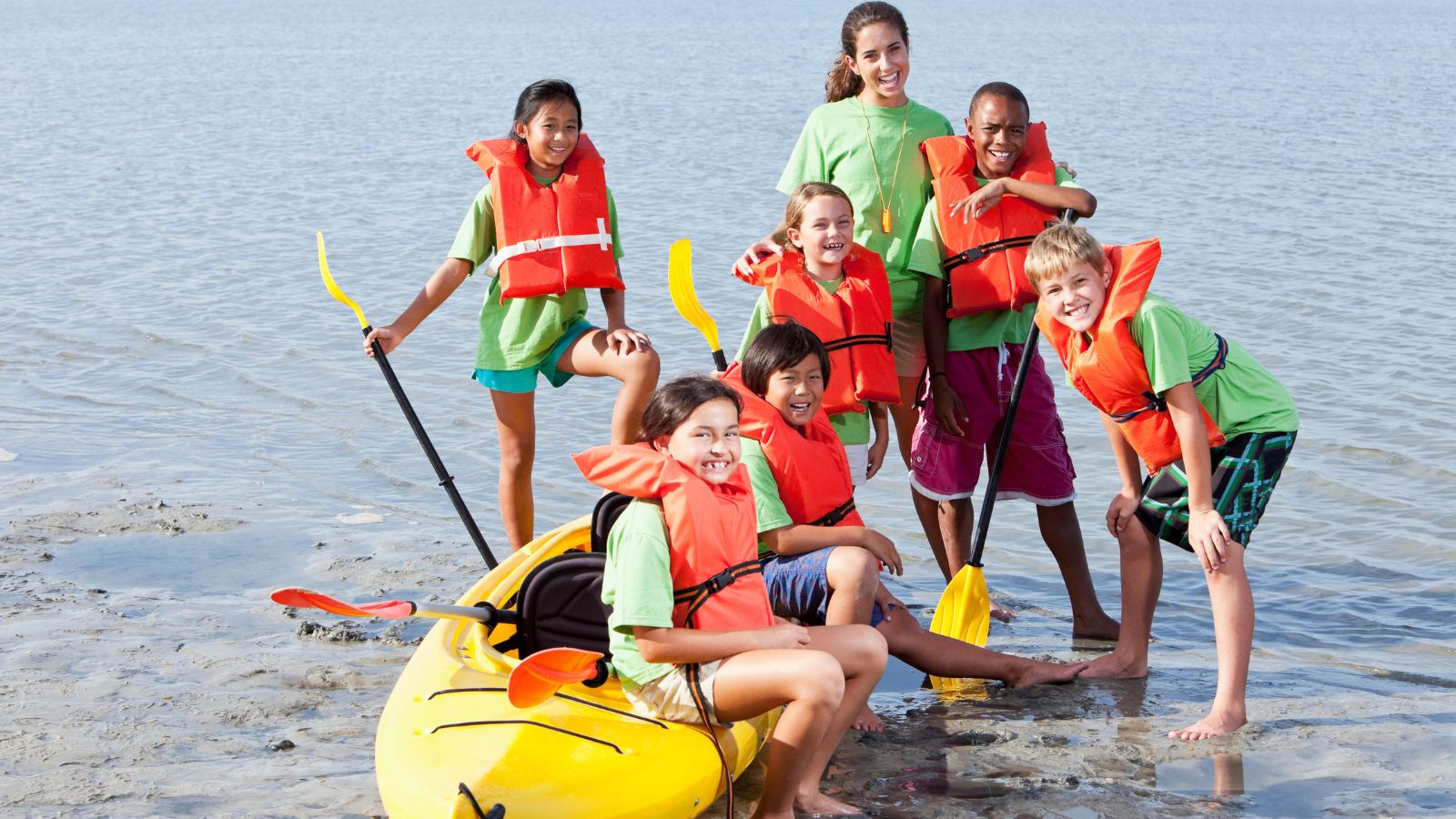Summer camp can be a transformative experience for children. Still, for parents of introverted boys, the decision requires extra care and consideration to ensure the experience is positive rather than overwhelming. How do I choose the right summer camp for my introverted boy?
Look for smaller camps (under 100 campers) that offer structured activities with plenty of downtime, maintain low counselor-to-camper ratios (1:4 to 1:8), and provide quiet spaces where introverted children can recharge when needed.
While this basic formula works well as a starting point, several other crucial factors to consider could make or break your introverted child’s camp experience. Understanding these additional elements will help you make a more informed decision and ensure your son survives and thrives at summer camp.
What Specific Features Should I Look For In A Camp For Introverted Children?
When evaluating camps, pay special attention to the daily schedule. The ideal program should balance group activities with adequate personal time. Look for camps that offer optional activities during certain periods, allowing your son to choose between social interaction and quieter pursuits. The best camps for introverted children typically schedule their high-energy activities in the morning, followed by calmer activities or rest periods in the afternoon.
The physical layout of the camp is equally important. Seek out facilities providing cozy corners, reading nooks, or nature areas where children can take brief breaks. These spaces serve as crucial retreats when your introverted child needs to recharge his social batteries.

How Can I Prepare My Introverted Son For The Camp Experience?
Start discussing camp several weeks in advance, but avoid overwhelming him with constant talk about it. Share the camp’s schedule and activities, allowing him to mentally prepare for what to expect. Consider visiting the camp beforehand if possible, as familiarity can significantly reduce anxiety.
Work with your son to develop simple coping strategies he can use when feeling overwhelmed. This might include bringing a favorite book, having a special spot to write in his journal, or knowing it’s okay to tell his counselor when he needs some quiet time. Practice these strategies at home before camp begins.
What Are The Signs That A Camp Isn’t The Right Fit For My Introverted Child?
Watch out for summer camp for boys programs emphasizing constant group activities with little downtime. Be wary of programs that promote “breaking out of your shell” as a primary goal, as this approach often creates unnecessary pressure. Avoid camps with rigid schedules that don’t allow for any personal time or those that treat introversion as something to be “fixed.”
Also, be cautious of camps with large bunk groups or those that discourage bringing comfort items from home. While some structures are good, an environment that doesn’t respect personal boundaries or different personality types can be particularly challenging for introverted children.
How Long Should The Camp Session Be For An Introverted Child?
For many introverted children, starting with a shorter camp session is often the wisest choice. Consider beginning with a one-week program rather than jumping into a month-long commitment. This allows your son to experience camp life without feeling overwhelmed by a lengthy stay away from home.
Some camps offer “mini-sessions” of 3-4 days, perfect for first-time campers. If your son enjoys the experience, you can gradually increase the duration in subsequent years. Remember that quality of experience matters more than quantity of time spent at camp.

What Role Should The Camp Counselors Play With Introverted Campers?
The most successful camp experiences for introverted children often involve counselors who understand and respect different personality types. Look for camps that train their staff specifically in working with diverse temperaments. The best counselors will know how to gently encourage participation without pushing too hard.
Don’t hesitate to ask about the counselors’ training and experience with introverted children during your research. Good questions include how they handle homesickness, approach to group activities, and support children who need extra time to warm up to new situations. The right counselor can make the difference between a challenging experience and a rewarding one that builds confidence and social skills while respecting your son’s natural temperament.
Building Self-Esteem And Independence
Start your camp search early – ideally 6-8 months before summer – by making a list of camps within your desired geographic area that match the criteria discussed above. Then, schedule phone calls with the camp directors to specifically discuss their approach to supporting introverted children, as this initial conversation will quickly reveal whether a camp truly understands and values different personality types.
